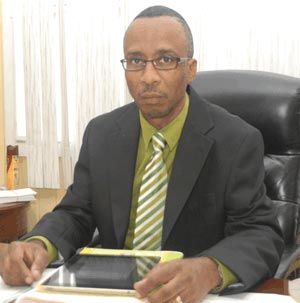ONE of the most powerful scenes I’ve ever seen in a movie was the final courtroom scene in “A Time to Kill”.
For those who didn’t see the movie, basically a defending lawyer is summing up his arguments in a case where his client is on trial for killing some men who brutally raped his daughter.
I’ve been following the case of the more than 200 girls abducted by militant group, Boko Haram in Nigeria, and I have found myself horrified – imagine if one of the girls kidnapped was my daughter. For those who haven’t

heard about the group and its supposed motives behind the kidnapping, consider the following:
“The Islamist militants’ name translates to “Western education is a sin” in the local language. The group especially opposes the education of women. Under its version of Sharia law, women should be at home raising children and looking after their husbands, not at school learning to read and write. It has repeatedly targeted places of learning in deadly attacks that have highlighted its fundamental philosophy against education.”
Boko Haram has made it clear that the girls will be sold as ‘wives’, for as little as what works out to about $2,000 in Guyana currency. The story did not end there however. When the seemingly hapless President of Nigeria, Goodluck Jonathan, finally decided – in the face of both local and international pressure– to send in army troops to look for them, the town which the army was briefly based in before moving on was attacked and over 300 people were killed, many of them while they slept. And soon after that, in what was clearly a blatant display of the impunity with which it operated, Boko Haram then again kidnapped another set of girls, fewer than the original victims, but of considerably younger age.
If there is anything positive about this is that the world seems to have responded to this atrocity. Not only have the United States and Great Britain mobilised forces to go into Nigeria to find and release the abducted girls, but the United Nations Security Council has also released a statement calling for their unconditional release, often a first step before decisive action is taken. Additionally, much of the news coverage has highlighted the story in the context of the similar plight of young girls all over the world, from their being trafficked for sexual exploitation in places like Cambodia, to the fight to prohibit them from having an education in places like Afghanistan and Pakistan.
This article is being published on Mother’s Day, an internationally celebrated commemorative day. I can imagine the pain of the mothers who are going to have to spend today without the warmth of their daughters next to them. One of the mothers who have stood out in adding their voices to the campaign is US First Lady, Michelle Obama, who took over her husband’s scheduled address to the nation to call for the return of the girls, even as she praised the Nigerian mother’s who continued to send their girl children to school:
“Many of them may have been hesitant to send their daughters off to school, fearing that harm might come their way. But they took that risk because they believed in their daughters’ promise and wanted to give them every opportunity to succeed.”
This Mother’s Day, even as I highlight the tragedy of the Boko Haram abductions, I want to take the opportunity to encourage all mothers to cherish their own children, take care of them, and be grateful for the fact that they do not have to face the sort of dangers that children across the world face.
And a blessed Mother’s day to all our mothers.
(By Keith Burrowes)




.jpg)









